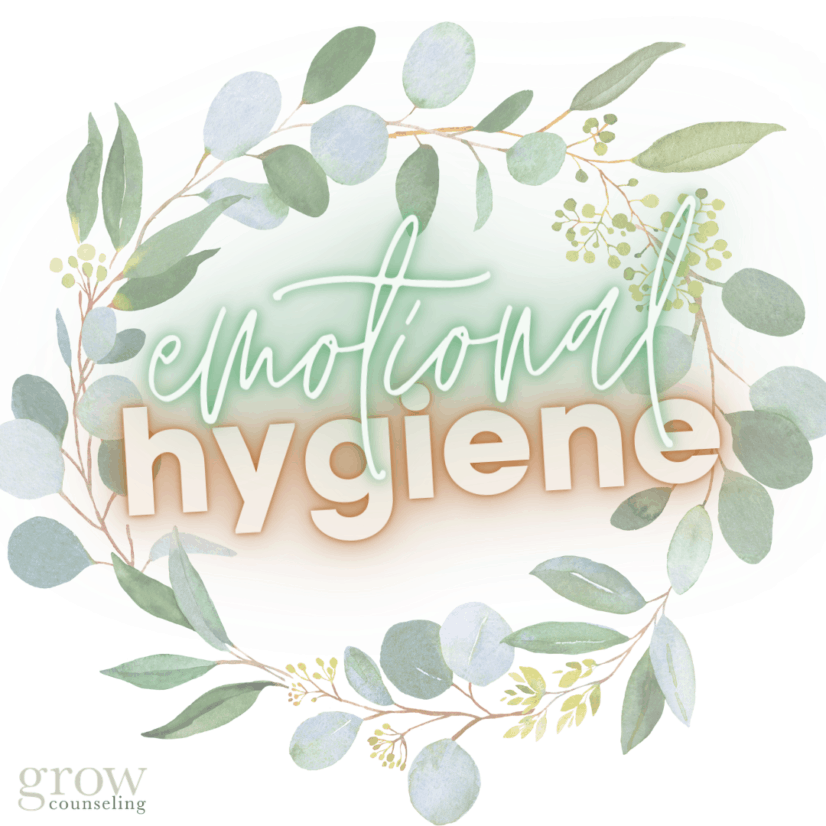“What we achieve inwardly will change outer reality”
Plutarch
Physical health goals are something I hear about almost daily. Staying fit, eating healthy, and looking good physically are a top priority for the fast-paced society we live in today. There’s even a common saying that, “When you look good, you feel good.”
While that may partially be true, I can’t say that I completely agree. While you do want to look your best outwardly, it’s often what’s unseen that’s most important.
We’ve all heard the stories about the glamorous celebrity that appeared to have it all on the outside but was secretly struggling with depression and suicidal thoughts. I think this speaks volumes on just how deceiving looks can sometimes be.
I recently came across a TED Talk on the importance of emotional hygiene. I had never heard it worded that way, but I appreciated the practicality of looking at mental health as emotional hygiene because, honestly, that’s exactly what it is.
Checking your emotional state should be as common as checking to make sure you put on deodorant.
Like smelly armpits, unchecked emotions have the power to impact both you and others throughout the day. The speaker, Guy Winch, did a great job normalizing the importance of mental health awareness as well as drawing attention to the dangers of neglecting it. I would encourage everyone to take some time to watch and think about the different ways you can improve your emotional hygiene.
Here are some of my main takeaways from his presentation:
- Pay attention to emotional pain.
There are many forms of emotional pain, but the two Winch focused on were loneliness and failure. Loneliness causes us to believe that those around us care much less than they actually do. Our response to this is often to withdraw, thus highlighting the feelings even more. Failure is another tricky one, as it causes us to question ourselves. We all have a default set of feelings and beliefs that gets triggered by frustrations and setbacks. Being aware of how your mind reacts to loneliness and failure is a great first step towards developing emotional hygiene. After all, you can’t treat a wound if you aren’t aware of the injury. - Stop emotional bleeding.
When we encounter painful emotions such as failure or rejection, we often start thinking of all our faults and shortcomings. This causes us to cut emotional wounds even deeper. When we cut our skin or find a wound, it’s not common to find a knife and attempt to cut it deeper. Unfortunately, that seems to be a common go-to when it comes to our emotional wounds. Instead of causing more bleeding, think thoughts that will revive your self-esteem. - Protect self-esteem and battle negative thinking.
When we encounter painful situations, we can develop the habit of ruminating on the scenario by replaying it over and over in our head. By spending so much time focusing on upsetting and negative thoughts, you are putting yourself at risk for developing several physical and mental health disorders. Of course, habits can be tough to break, especially toxic ones. Fortunately, studies show that even a two-minute distraction is sufficient enough to break the urge to ruminate on a moment. By forcing yourself to concentrate on something else, not only will you begin to break the habit of ruminating, but you’ll also be on your way towards good emotional hygiene.
One of the best ways to process some of these habits and begin your journey towards a more healthy mental and emotional state is to seek counseling.
If you are thinking about seeking a therapist, I would encourage you to act on that thought. After all, you wouldn’t put off seeing a doctor for a sprained ankle. It’s time we take mental health seriously, and do what’s necessary to equip ourselves to be both physically and emotionally stronger.
Written by: Salima Hart

